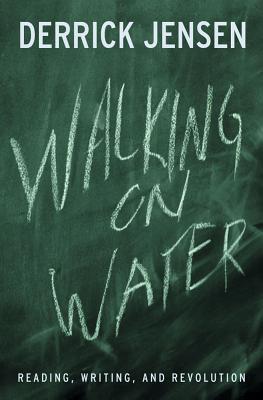
Endgame, Vol. 2: Resistance
Book Description
Amid a world teetering on the brink of collapse, voices of defiance rise against an oppressive landscape. "Endgame, Vol. 2: Resistance" explores the fierce struggles of those who dare to challenge a crumbling system, uniting disparate souls in a battle for survival and a vision of renewal. With visceral clarity, Derrick Jensen delves into the human spirit's resilience and the choices that define us at the edge of despair. Each page crackles with urgency, presenting the undeniable truth that meaningful change is a fight worth waging. What sacrifices will they make to reclaim their future?
Quick Book Summary
"Endgame, Vol. 2: Resistance" by Derrick Jensen is a provocative exploration of radical environmentalism, focusing on the necessity of active resistance to defend the planet. Building upon the critique of civilization initiated in the first volume, Jensen confronts readers with hard-hitting questions about the limits of nonviolent protest and the ethical complexities of confronting destructive systems. Through personal reflection, historical analysis, and impassioned argumentation, he advocates for a diversity of tactics—insisting that real change often demands direct action and, at times, disruption. The book is a manifesto for those disillusioned by incremental reform, urging collective and individual resistance against the ecocidal machinery of industrial society. Jensen doesn’t shrink from the difficult sacrifices required, but ultimately offers hope for a future reclaimed through solidarity, courage, and a shared commitment to renewal.
Summary of Key Ideas
Table of Contents
The Moral Imperative of Resistance
Jensen opens by framing resistance as a necessary and urgent moral imperative. With ecosystems collapsing and cultural violence escalating, he argues that submissive acquiescence is itself a form of complicity. Drawing on both personal experiences and historical examples, Jensen confronts the failure of conventional activism to check the excesses of industrial civilization. He contends that resistance is not merely justified, but ethically required in the face of systemic destruction, positioning those who fight back as defenders of life itself.
Limits of Nonviolent Protest
Acknowledging the appeal of nonviolence, Jensen critically assesses its limitations in the battle against entrenched systems of power. He explores movements from Gandhi to the Civil Rights era, illustrating both successes and failures. Ultimately, Jensen concludes that while nonviolent tactics hold strategic value, they are often insufficient when authorities are immune to public pressure. When confronted with unyielding forces, he suggests that clinging to nonviolence can allow for continued devastation, raising challenging questions about personal and collective responsibility.
Diverse Strategies and Direct Action
Derrick Jensen advances the argument for a diversity of tactics in environmental and social struggles. Upon analyzing various resistance movements, he highlights that transformative change historically often required a range of approaches—from education and protests to sabotage or direct confrontation. The book investigates the practical and ethical complexities of such tactics, urging activists to expand their toolkit and remain awake to the necessity of disruption when faced with unresponsive or hostile systems.
Psychological Barriers to Defiance
A major barrier to effective resistance, Jensen contends, is psychological. Internalized pacification, learned helplessness, and cultural myths about obedience inhibit people from challenging authority. The book draws on psychological research and anecdotal evidence to expose how dominant narratives prevent meaningful rebellion and foster resignation. Jensen encourages readers to cultivate courage and critical consciousness, urging a transformation from passive bystanders into active agents for change.
Reclaiming Community and Planet
Concluding with a call to reimagine community and connection to the land, Jensen balances the brutal realities of resistance with the hope of renewal. He invites readers to participate in the creation of resilient, regenerative cultures that honor both other humans and the nonhuman world. While acknowledging the sacrifices entailed in genuine resistance, the book affirms that reclaiming our future is possible through mutual aid, solidarity, and the reclaiming of agency. "Endgame, Vol. 2: Resistance" challenges its audience to envision—and build—a world worth saving.
Download This Summary
Get a free PDF of this summary instantly — no email required.





